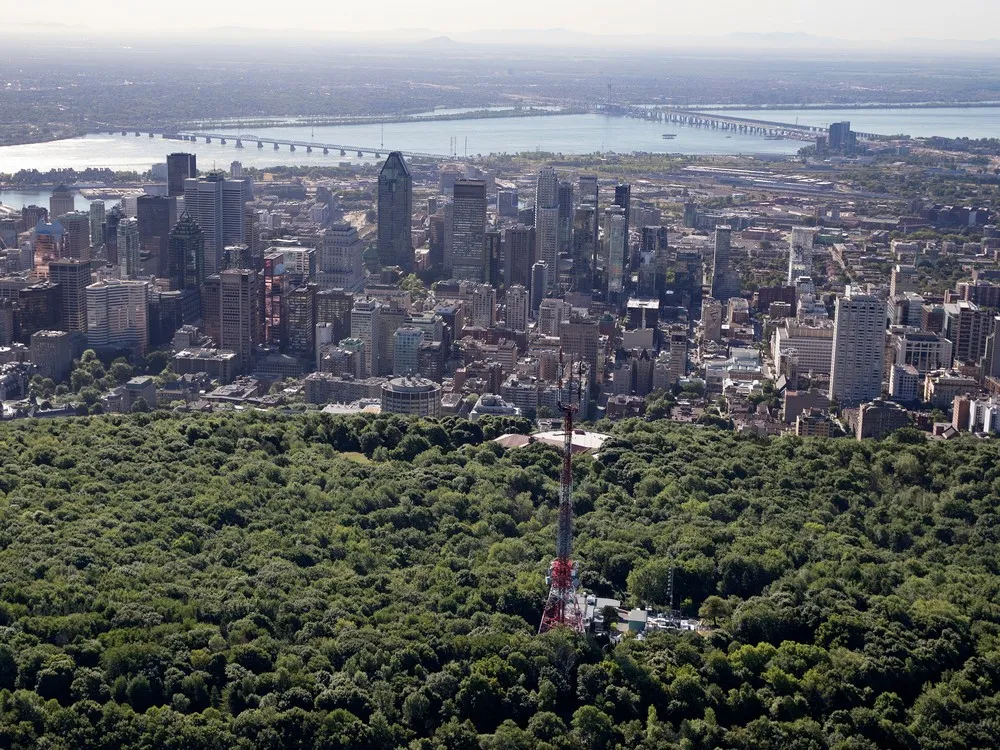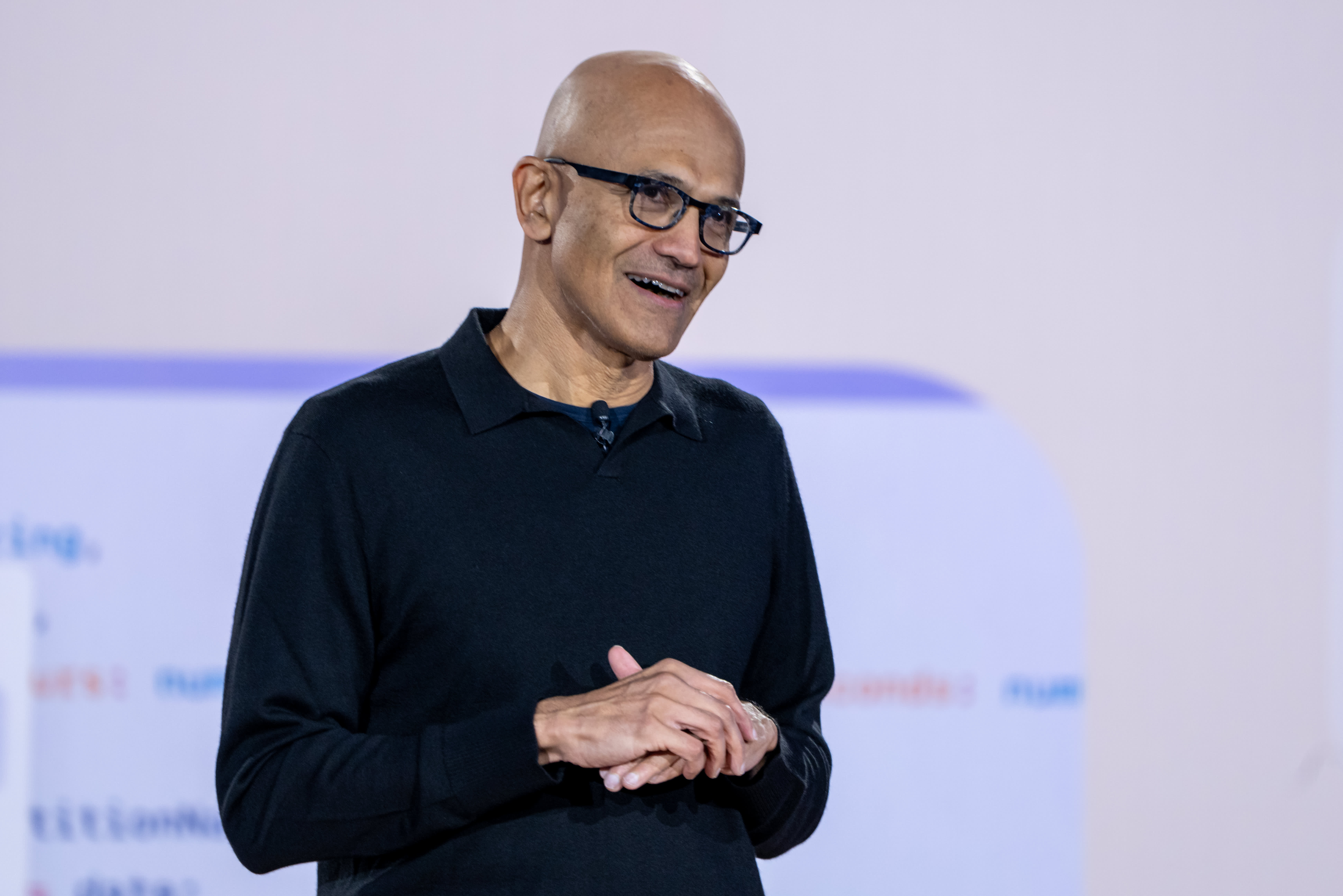By Jacob Serebrin,Montreal Gazette
Copyright montrealgazette

Advertisement 1This advertisement has not loaded yet, but your article continues below.
The city of Montreal skyline is seen over the top of Mount Royal in this aerial view. Photo by Allen McInnis /Montreal Gazette filesArticle contentThe number of people turning to a local non-profit for help finding work is on the rise. Sign In or Create an Accountor View more offersArticle contentOver the past couple of years, the labour market has quickly become more competitive, said Annalise Iten, the director of employment and a senior career counsellor at YES, which helps young anglophones find work and start businesses.Article contentArticle contentWhile young people have always struggled with the catch-22 of needing experience to get jobs and not being able to get that experience without a job, that struggle has been getting more difficult, she said.Article contentAdvertisement 1Story continues belowThis advertisement has not loaded yet, but your article continues below.Article content“It’s hard across the board, I’ll be very honest about that,” Iten said. Article contentEven people who have some professional experience are now finding it very difficult to find the jobs they want, she said. Article content“It goes without saying that if you don’t have any experience, all that feels more like an insurmountable challenge.”Article contentOn Thursday, the two leading candidates — Projet Montréal’s Luc Rabouin and Ensemble Montréal’s Soraya Martinez Ferrada — in the mayoral race will meet for a debate on the city’s economy and business environment at the Chamber of Commerce of Metropolitan Montreal. Article contentThe debate comes as the city weathers the latest in a series of economic shocks: a trade war with the United States and a period of economic uncertainty have come not long after the recovery from the COVID-19 pandemic. Article contentIn August, the unemployment rate on Montreal Island was 8.9 per cent for the third straight month, up from 7.7 per cent in the year-earlier period and 5.6 per cent in August 2023, according to the Institut de la statistique du Québec. Article contentAdvertisement 2Story continues belowThis advertisement has not loaded yet, but your article continues below.Article contentIten said the increasing use of automation and job cuts at some businesses have made it harder for young people to find jobs in fields where they were often able to find work, leading them to organizations like YES. Article content“I’ve had a lot of software engineers, I’ve had a lot of people in the graphic design business, digital marketing, project management,” Iten said of her clients, adding that she also sees a lot of web developers with limited experience. Article contentThe 8.9-per-cent unemployment rate is the second-highest regional rate in the province, after that of Gaspésie–Îles-de-la-Madeleine, and the gap between the unemployment rate on Montreal Island and that of its suburbs appears to be growing. Article contentIn Laval, unemployment rose from 5.9 per cent in August 2023 to 6.8 per cent in August this year. In the Montérégie region, which includes South Shore cities like Longueuil, as well as areas west of the city like Vaudreuil-Dorion, unemployment rose from an average of 4.1 per cent in August 2023 to 4.6 per cent in August this year. Advertisement 1This advertisement has not loaded yet.Trending Update: Power fully restored after gas leak prompts shutdown for thousands in downtown Montreal Local News Unions, red tape and ‘radical Islamists’: Legault lays out his battles in inaugural address Quebec Politics Advertisement 1Story continues belowThis advertisement has not loaded yet, but your article continues below. Two men, 19, and a minor charged after firebomb attack on St-Lambert restaurant News Cowan: Joe Veleno could be wild card for Canadiens this season Hockey Former École St-Laurent basketball coach says relationship with teen was like ‘a big brother and a little sister’ News
Advertisement 2AdvertisementThis advertisement has not loaded yet, but your article continues below.
Article contentOver the past two years, there’s been more job creation in the suburbs than on Montreal Island, said Emna Braham, the CEO of the Institut du Québec, an economic think tank. Article contentDuring that time, around 11,000 jobs were created in Montreal, compared with 42,000 in the regions around the city. At the same time, the population has risen, she said. Article contentBetween 2022 and 2023, Montreal’s population rose by 4.3 per cent, according to the province’s statistics agency, with nearly 90,000 people moving to the island. Article content“No region in Quebec has ever recorded such a high annual growth rate before,” the ISQ said in a report published late last year. Article contentAcross the region, “the economic expansion is not going hand-in-hand with the population expansion,” said Loubna Zebiri, an economist at the Conference Board of Canada, who recently prepared an economic forecast for the Greater Montreal region. Article contentAdvertisement 3Story continues belowThis advertisement has not loaded yet, but your article continues below.Article contentHowever, she said her forecast projects that unemployment will decrease in the coming years and average 4.8 per cent by 2029 — a drop of more than two percentage points from the current rate of 6.9 per cent across the Greater Montreal region, as changes to immigration policies slow population growth. Article contentBraham said there has been a generalized economic slowdown that began in 2023, when interest rates were increased in an effort to reduce inflation. Article content“Then the trade war caused a lot of uncertainty for Montreal’s economy,” she said. Article contentWhile effective tariffs rates have been lower than feared, with many exceptions to U.S. import duties, businesses have been hesitant to invest, hire new employees and grow, she said, slowing the economy across the province. Toronto has also had a similar rise in its unemployment rate, she said. Article contentMontreal’s diversified economy has made it less vulnerable than some other Quebec regions, Braham said, but new threats of U.S. tariffs on pharmaceutical products could have an impact on a major local industry.Article contentAdvertisement 4Story continues belowThis advertisement has not loaded yet, but your article continues below.Article contentBefore the 2023 slowdown, ISQ data suggests Montreal’s economy was growing faster than some of its neighbours. Between 2018, the first full year that Valérie Plante was in power, and 2023, the most recent year for which data is available, average economic growth on Montreal Island was higher than in Laval or Montérégie, while the Lanaudière and Laurentides regions north of the city had higher average growth.Article contentDuring the previous four years, when Mayor Denis Coderre was in power, Montreal’s economy grew at a slower average pace than any of those surrounding regions. Article contentZebiri said she’s forecasting subdued economic growth of around 0.8 per cent in the Montreal region this year. While she said that’s low compared to historical norms, it’s promising. She said she expects average growth rates of around two per cent between 2026 and 2029. Her forecast is comparable for Vancouver, while she expects Toronto’s service sector, with its strong finance component, to drive more growth in that city, where population growth is expected to continue even as immigration rules tightens, unlike in Montreal. Advertisement 2This advertisement has not loaded yet.
Advertisement 3Story continues belowThis advertisement has not loaded yet, but your article continues below.
Article contentAmid a period of economic uncertainty and change, Isabelle Dessureault, the president and CEO of the Chamber of Commerce of Metropolitan Montreal, said the city needs to do a better job of working with business. Article content“We need the city to be more pro-business, to also be more agile, because the world is asking us to be more competitive,” she said in a recent interview. Article contentDessureault said she’s optimistic about Montreal’s future: the city recovered extremely well from the COVID-19 pandemic and she thinks it can be resilient in the face of a new crisis. Article content“We have world-class talent, we’ve been recognized for innovation, we have a business community that is very engaged, as well, so I’m optimistic, but, of course, we’re facing new realities,” she said. “We need more to work as a team.” Article contentDessureault, who was the Quebec government’s delegate in Miami, Florida and Atlanta, Georgia, before returning to head the CCMM, said she thinks Montreal could take some lessons from those U.S. cities, where she said municipal administrations ask entrepreneurs how they can help. Article contentAdvertisement 5Story continues belowThis advertisement has not loaded yet, but your article continues below.Article contentIt’s a different mindset than in Montreal, where she said the administration has not wanted to be seen as being too close to the business community, or like it’s offering preferential treatment. She said she’d also like to see elected officials talk to the business community more and not just during consultations, where she said there often hasn’t been an openness to change the plans being presented. Article contentDessureault recently put a list of recommendations for the winning candidate, among its requests are that the city encourage its 19 boroughs to innovate and that successful ideas be adopted citywide.Article contentShe said St-Laurent took innovative steps to simplify its permit application process, with information online and an app, but that when the borough offered it to the central city so it could be used elsewhere, it was refused.Article content“We don’t believe in that, we believe that even though our city has a structure that is more complex, let’s say, than Laval, that’s an opportunity, each borough can bring new solutions, and when some of them are good, we should implement it throughout the city,” she said. “What we’re asking for is a shift in the mindset.”Article contentShe’d also like to see the winning candidate set measurable targets to improve things like the speed of permit applications, co-ordinate construction sites and make transportation around the city more fluid and to track those metrics publicly. Article content“We are amazing city, but if we don’t want to lose our touch, and I think we’re at a tipping point, we need to work together,” she said.Article contentAdvertisement 3This advertisement has not loaded yet.
Featured Local Savings



